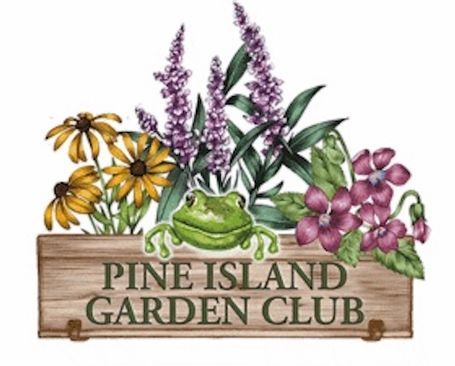Florida Agriculture Best Management Practices
Florida-Friendly Landscaping Program
For the purposes of the Florida Department of Agriculture and Consumer Services’ Best Management Practices (BMP) program, a BMP is defined by law as a means, a practice or combination of practices determined by the coordinating agencies, based on research, field testing and expert review, to be the most effective and practicable on-location means, including economic and technological considerations, for improving water quality in agricultural and urban discharges. According to Section 373.4595(2)(a), Florida Statutes, BMPs for agricultural discharges must reflect a balance between water quality improvements and agricultural productivity.
What Are Agricultural Best Management Practices?
Categories of practices include:
- Nutrient management to determine nutrient needs and sources and manage nutrient applications (including manure) to minimize impacts to water resources.
- Irrigation management to address the method and scheduling of irrigation to reduce water and nutrient losses to the environment.
- Water resource protection using buffers, setbacks and swales to reduce or prevent the transport of sediments and nutrients from production areas to waterbodies.
The Florida Department of Agriculture and Consumer Services' Office of Agricultural Water Policy (FDACS OAWP) develops and adopts BMPs by rule for different types of agricultural commodities. Florida law provides for agricultural producers to reduce their impacts to water quality through the implementation of applicable BMPs adopted by FDACS.
THE 9 PRINCIPLES OF FLORIDA-FRIENDLY LANDSCAPING™
1. RIGHT PLANT, RIGHT PLACE
Achieving a healthy, low-maintenance home landscape starts with putting the right plant in the right place. Select plants that match a site’s soil, light, water, and climatic conditions.
2. WATER EFFICIENTLY
An efficient irrigation system conserves water and helps to ensure that fertilizer and other pollution doesn’t flow into water bodies.
3. FERTILIZE APPROPRIATELY
Proper fertilization enhances growth, increases flowering or fruiting, corrects nutritional deficiencies, and enhances the plant’s appearance. Improper fertilization can damage plants and the environment.
4. MULCH
Mulch helps retain soil moisture, protects plants, and inhibits weed growth. It gives your landscape a neat, uniform appearance and is a great Florida-Friendly choice for hard-to-mow areas and shady spots.
5. ATTRACT WILDLIFE
Select plants with seeds, fruit, foliage, flowers, or berries that provide food. Supply sources of water, such as a rain garden or bird bath.
6. MANAGE YARD PESTS RESPONSIBLY
To prevent disease and insect outbreaks, select pest-resistant plants and put them in suitable locations. When problems do arise, remove the affected leaves or plant parts, or pick the insects off by hand.
7. RECYCLE YARD WASTE
Decomposing organic matter releases nutrients back to the soil in a form that plants can easily use. Using yard waste for composting is a sustainable way of creating organic fertilizer.
8. REDUCE STORMWATER RUNOFF
Fertilizers, pesticides, debris, and eroded soil carried in stormwater can wreak havoc on our water quality. Florida-Friendly Landscaping™ seeks to retain and use as much of the rainfall and irrigation water that lands on our home landscapes as possible.
9. PROTECT THE WATERFRONT
Florida boasts over 10,000 miles of rivers and streams, about 7,800 lakes, more than 700 freshwater springs, and the U.S.’s second-longest coastline.
Florida Agriculture Best Management Practices, see:
https://www.fdacs.gov/Agriculture-Industry/Best-Management-Practices-BMPs
Integrated Pest Management
Integrated Pest Management (IPM) is an effective and environmentally sensitive approach to pest management that relies on a combination of common-sense practices. IPM programs use current, comprehensive information on the life cycles of pests and their interaction with the environment. This information, in combination with available pest control methods, is used to manage pest damage by the most economical means, and with the least possible hazard to people, property, and the environment. The IPM approach can be applied to both agricultural and non-agricultural settings, such as the home, garden, and workplace. IPM takes advantage of all appropriate pest management options including, but not limited to, the judicious use of pesticides. In contrast, organic food production applies many of the same concepts as IPM but limits the use of pesticides to those that are produced from natural sources, as opposed to synthetic chemicals.
Integrated Pest Management (IPM) Principles United States Environmental Protection Agency
https://www.epa.gov/safepestcontrol/integrated-pest-management-ipm-principles
Glyphosate, the active ingredient in Roundup, is one of the most commonly used herbicides in the world by commercial gardeners. It has been reported that it may be highly toxic and cause many short-term and long-term health effects. Notably, research has reported that long-term exposure to glyphosate may be linked to Parkinson's Disease.
To help educate those in the farming and gardening industries about this toxic chemical, a comprehensive guide has been created. It covers things like what it is used for, symptoms, and side effects. A second guide is regarding non-toxic alternatives, please take a look:
https://www.drugwatch.com/roundup/glyphosate/
https://www.drugwatch.com/roundup/alternatives/
Asbestos
The Mesothelioma Center
While gardening materials in the present are safer than ever, many of the products used in the past contained asbestos. This wouldn't be a problem today if it weren't for the fact that constant exposure to this material is the #1 cause of mesothelioma cancer which takes about 20-50 years to develop.
https://www.asbestos.com/occupations/farmers/
https://www.asbestos.com/mesothelioma/malignant-sarcomatoid/
Send Questions to
pineislandgardenclub@gmail.com
For Website call (941) 698-5000
internet@pineislandgardenclub.org
© Copyright. All rights reserved.
We need your consent to load the translations
We use a third-party service to translate the website content that may collect data about your activity. Please review the details in the privacy policy and accept the service to view the translations.
